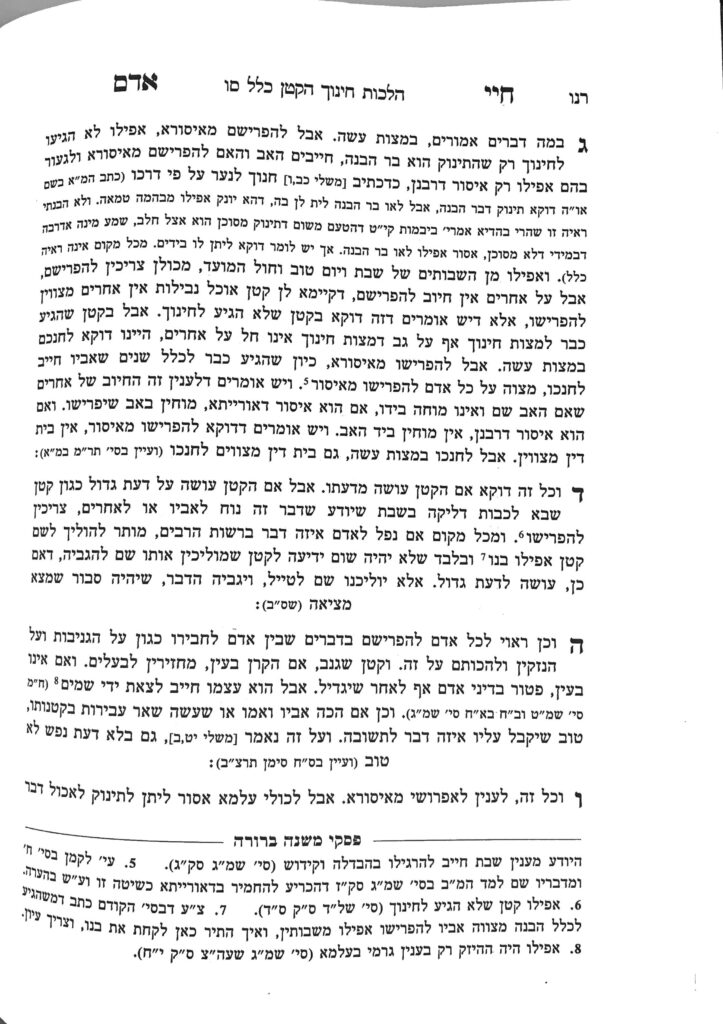We are continuing in siman 3, where the Chayei Adam discusses mitzvos lo saasei.
The Chayei Adam mentioned an opinion that adults other than a child’s parents may be obligated to stop a child from transgressing a mitzvas lo saasei. This question is a machlokes between the Shulchan Aruch and Rema. The Shulchan Aruch paskens that there is no chiyuv chinuch regarding a mitzvas lo saasei on anyone other than the father, but the Rema brings an opinion that once a child has reached the age of chinuch, there is a chiyuv on others as well.
To explain the Rema’s opinion, we learned in the previous shiur that chinuch for mitzvos lo saasei begins when a child is able to understand the concept of the word no. When a child reaches that age, the chiyuv chinuch for mitzvos lo saasei only applies to the father and not to others. However, once a child reaches the age of six or seven, which is the general age for many mitzvos of chinuch, the Rema understands that the child is now considered a functioning member of Klal Yisroel, so there is a chiyuv chinuch upon others in addition to the father.
This opinion of the Rema originates from Tosfos in Shabbos, daf 121a. The Shulchan Aruch does not pasken in accordance with this opinion. The Chayei Adam quotes both opinions, and does not write in accordance with whom he paskens, but it will be clear from what he writes later that he follows the Rema regarding mitzvos lo saasei on a deoraysa level, and this is the accepted psak.
The Chayei Adam brings another opinion regarding this question. He writes that some hold that the father is the only one responsible to be mechaneich the child; however, if the father is not taking action against the child transgressing a mitzvas lo saasei on a deoraysa level, others should protest against the father’s inaction. However, they do not need to protest against the father’s inaction on a child’s transgression of a mitzvas lo saasei on a derabanan level.
The Chayei Adam brings yet another opinion. This opinion holds that others are chayav to protest against even a mitzvas asei that the child is not fulfilling. We will discuss this opinion further in the next shiur, be’ezras Hashem.
Summary
The Chayei Adam holds that once a child reaches the age of six or seven, the chiyuv chinuch extends beyond the father to other members of Klal Yisroel if the child is transgressing a mitzvas lo saasei on a deoraysa level. However, the chiyuv chinuch does not extend beyond the father in any other circumstance



